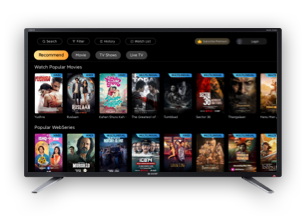David Carey Foster
David Carey Foster is a stage and screen based in Los Angeles, California. He was born in 1960 on an American army base in Landstuhl, Germany, and spent his childhood moving around the United States with his family of five, driven in part by his parents' life-long passion for travel and geographic diversity. After living in Illinois, Ohio and Florida, the family eventually settled in Albuquerque, New Mexico.
It was there that he attended Eldorado High School and was bitten by the acting bug in his junior year. After reading a John Masefield poem in an Introduction to Theatre class, the drama instructor, George Nason, asked him to audition for a production of "A Midsummer Night's Dream." He did and was cast in nearly every show for the next two years. The fire was ignited.
David was also busy off-stage, earning a little pocket money in a series of wide-ranging, and often unusual after-school jobs. He had a landscaping business with three friends, retrieved mis-hit balls at a local golf-course pond, cut railroad ties at the end of a two-man saw, unloaded nitroglycerin for a demolition company, and washed dishes at a dinner theatre.
After graduating high school in 1978, he won theatre scholarships from the three major universities in New Mexico, ultimately deciding to accept at the smallest of them - Eastern New Mexico University - in order to get the most stage time.
ENMU was located in the southern part of the state, in the middle of a large peanut and dairy-farming community. White at "Eastern" his stage roles were as varied as they were plentiful. But after two years of study and his first professional gig - a summer show on Galveston Island - he started to feel the allure of more practical, real-world experience.
When a director he had worked with at ENMU suggested David for a contract at the Great American Melodrama on the central coast of California, he jumped at the opportunity. After breaking the difficult news to his parents, he struck out for California with a one-year contract, 500 dollars and the 30-show resume that he had gained in the four years since he read John Masefield's poem in high school.
At "The Melodrama," as locals call it, David cut his eyeteeth as a professional actor: working six days a week in wide-ranging productions; greeting, seating and serving patrons; and eventually became the on-stage emcee. It was a foundational year-long crash-course in sustained, interactive live-performance.
From there, it seemed he inherited his parents' wanderlust. David left the central coast, and spent a good number of years working in regional theatre, traveling the country before finally finishing the degree he started in New Mexico with two years of study at the University of Arizona, as well as securing a handful of television roles that included his first network appearance on "The Young Riders" as Doc.
After a couple more years working regionally, David finally settled in Los Angeles, and began adding to his TV and film credits. He also started to diversify more earnestly into music and writing; two sub-headings to his talents that had been serving him along the way, forming a writing partnership with friend Todd Schroeder, a well-known local music director, performer and musician. They eventually partnered with another friend, Thomas Lauifi, and began a singing trio called Pepper Street, after the street they lived on.
Along the way, David also aligned with actor/musician, Larry Poindexter, to create a new rhythm and blues musical called "The Devil You Know;" thanks in part to actor Stephen Root, who took the reins as a producer and was instrumental in the formal workshop that would forge the ultimate form of the show.
David has since continued developing other works for the stage including a completed stage adaptation of Judith Guest's seminal work, "Ordinary People."
As a producer, David has worked for the Central Coast Repertory Theatre on productions of "My Children - My Africa," "Stieglitz Loves O'Keefe," "Voices of America" and "A Night at the Tony's." At the Colony Theatre in Los Angeles, he also sat on the other side of the table to produce "Einstein & the Polar Bear" and "The Cocktail Hour."



